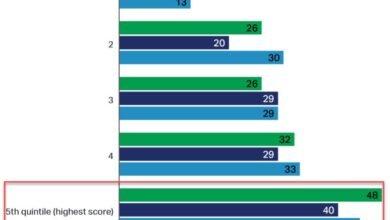View: Millennials are turning CEOs of their own lives

By | Devdutt Pattanaik | Indian Author
How many of us convert corporate behaviour into self-help lessons? Considering that corporate behaviour is shaped by the knowledge and experience of many hundreds of management experts, surely it makes sense to use corporate principles as guidelines to build our life? For example, how many of us have a plan for 2030 for our lives? How many of us have sat down with our family members and asked where do we want to be 10 years from today? How do we double the family income, or halve the family expense, buy a house, or car, or retirement home? How many of us have set up goals – get married, get children married, have a corpus for education, or a corpus that allows for early retirement? How many of us really do this? How many of us resent wealth managers who force us to think ahead? How many of us actually strategize our lives – have Garuda-drishti, or bird’s eye view of what our vision of life is a decade from now? And how many of us think tactically? How many of us bother with Sarpa-drishti as corporates do? Do we have personal goals for the year, for every quarter? Targets to meet – be it health goals (lose weight, reduce carbohydrates), or lifestyle goals (go on frequent dates with spouse and children and parents), or financial goals (more savings, more investments, less spending)?
Do we think in terms of planning and execution? How do we hire talent in our lives – cooks, drivers? Do we treat them as HR managers are supposed to, with respect? Do we give them bonuses on time, and adequate rewards and recognition? Do we reward and recognize our spouses and our children and our parents? Do we have family meetings to track family time and money management? Do we compete with family or collaborate with them? Who is the CPO of our family, managing relationships within and without, with friends and neighbours and extended family?
Who is the CFO of the family who manages the treasury – cash in hand, investments, debts, equities? Who is the CEO taking the final decision? Do we value gender diversity in decision making? Are we invested in skill development of the family members?
Is our family a firm with strong foundations? Is it a partnership or a feudal organisation, where everyone obeys the patriarch, or matriarch? How do we on-board new family members: sons-in-law, daughters-in-law, new neighbours, new staff ? How do we terminate relationships, nicely or nastily? Do we document the family history – who keeps records of birthdays, and anniversaries and photos to be archived for future reference, when all that survives is family. What are the family values? The family policies? Are they driven top-down or democratically? What is the Standard Operating Procedure? Are there fixed mealtimes, family rituals, to increase bonding? How does home ensure there is work-life balance? Do we counsel each other through stressful times? How we nurture family dividend? How does the family create its brand equity? Do neighbours love us or shun us or indifferent to us? Are we part of the building society’s efforts to build a good neighbourhood? Is that the family equivalent of Corporate Social Responsibility?
Do we have annual meetings to review the past year – an annual general meeting? Are the shareholders happy or just waiting to exit? Just as religion is not out there, in the temple, or in the guru’s ashram, but in our homes and hearts, even workplace is not out there at the workplace, but at home, in our lives. We are CEOs of our life, responsible for the shareholder, and for the employees, who create the organisation, we call family.
Republished with permission and originally published at devdutt.com





